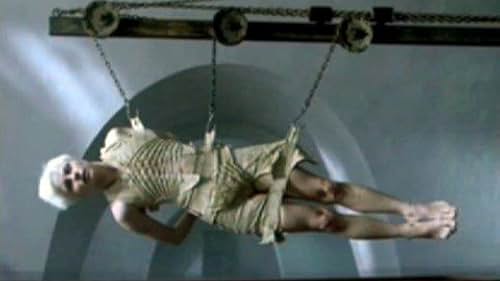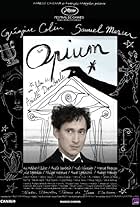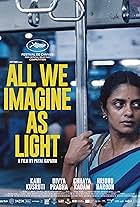A drug-addicted doctor (Thomsen) who works in an asylum discovers that one of his patients (Stubo) is a gifted writer.A drug-addicted doctor (Thomsen) who works in an asylum discovers that one of his patients (Stubo) is a gifted writer.A drug-addicted doctor (Thomsen) who works in an asylum discovers that one of his patients (Stubo) is a gifted writer.
- Awards
- 7 wins & 6 nominations
Photos
- Gizella
- (as Kirsti Stubø)
- Director
- Writers
- All cast & crew
- Production, box office & more at IMDbPro
Storyline
Did you know
- Quotes
Gizella: [Narrating; scene shows her being lowered into a "therapy" tank of water at the asylum] I'll have you know that I am an arm of your God. God herself. I was the first living being. My upper part is the fiery sun, in the rays of which live the Souls of the Dead. The Sun is God itself. The Sun shoots off millions and millions of electric beams. Initially, as I became conscious, I started to revolve around myself. While circulating, an immense heat developed and compressed itself to Earth. This is how I created the Earth and the stars. I took God's name, but Evil resides in my cells. Yes, Evil is reigning over the world.
Gizella: [Still narrating, as she is re-submerged in the therapy tank] I have an arm for every person through which I govern the world. These invisible arms arrange people's fate, their every step and smallest action. I'm an arm of your God.
The film focuses on the deep and disturbing relationship that develops between the opium- addicted Dr Brenner (Ulrich Thomsen), a doctor who arrives to work in an institute for the insane in the early 1900s, and his patient Gizella (beautifully portrayed by Norwegian Kirsti Stubo). She is a long-term inmate who is obsessed with the idea that she has been possessed by the devil, and whose only release from her inner torments is to write compulsively and almost non-stop in her diaries. Brenner's professional interest in Gizella becomes complicated by his growing envy of the fact that she can write so freely and passionately, while he - an aspiring writer - struggles to put any words on paper. Their relationship is further complicated by a powerful mutual desire that develops between them, culminating in an intense sexual episode, and by the fact that Brenner begins to appropriate Gizella's writings, which he plans to pass off as his own. Gizella comes to believe that the sexual relationship between her and Brenner means that they are now "husband and wife", and her condition appears to improve. However, when Brenner repudiates & mocks her belief in front of the head of the institution (played with just the right amount of icy arrogance by Zsolt Laszlo), she becomes hysterical. Her madness returns and even increases in intensity. During the ensuing treatment - which is more like torture - Gizella begs Brenner to give her relief from her ongoing torment by "removing my brain". Brenner's subsequent actions provides the climax to this powerful film.
The depiction of the horrific treatment inflicted on psychiatric patients in the early years of last century may be deeply disturbing to many, but it is absolutely truthful. Electroshock therapy, ice-water showers, force-feeding, total confinement and even frontal lobotomies (crude brain surgery) were part of accepted medical practice of the time for those considered "insane". I absolutely disagree with those who have described this film as "exploitive' - it simply shows the situation in all its grim reality pretty much exactly as it was back then. In fact many of these forms of treatment were continued until the late 1950s, even in supposedly enlightened countries like Australia.
In summary, a riveting and beautifully crafted film that will leave you with haunting memories for years to come.
Details
- Release date
- Countries of origin
- Languages
- Also known as
- Afyon: Bir Kadın Delinin Günlüğü
- Filming locations
- Production companies
- See more company credits at IMDbPro
Box office
- Gross worldwide
- $59,534
- Runtime1 hour 30 minutes
- Color
- Aspect ratio
- 1.85 : 1
Contribute to this page











